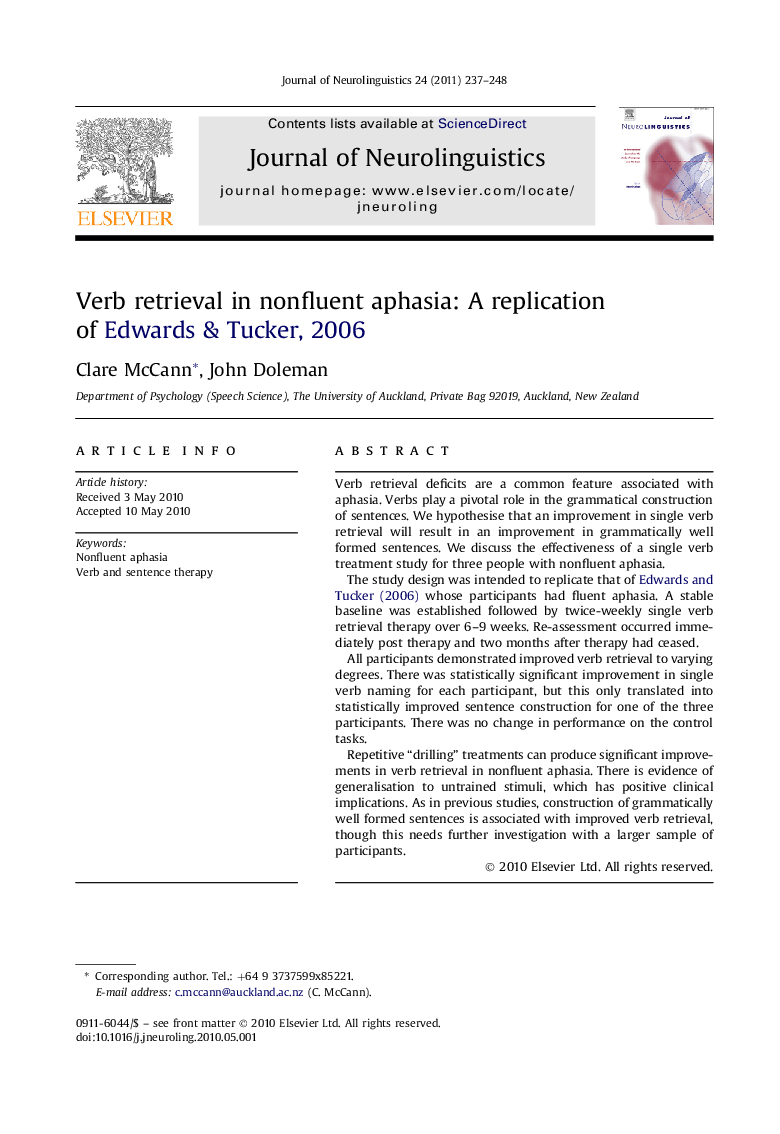| Article ID | Journal | Published Year | Pages | File Type |
|---|---|---|---|---|
| 911925 | Journal of Neurolinguistics | 2011 | 12 Pages |
Verb retrieval deficits are a common feature associated with aphasia. Verbs play a pivotal role in the grammatical construction of sentences. We hypothesise that an improvement in single verb retrieval will result in an improvement in grammatically well formed sentences. We discuss the effectiveness of a single verb treatment study for three people with nonfluent aphasia.The study design was intended to replicate that of Edwards and Tucker (2006) whose participants had fluent aphasia. A stable baseline was established followed by twice-weekly single verb retrieval therapy over 6–9 weeks. Re-assessment occurred immediately post therapy and two months after therapy had ceased.All participants demonstrated improved verb retrieval to varying degrees. There was statistically significant improvement in single verb naming for each participant, but this only translated into statistically improved sentence construction for one of the three participants. There was no change in performance on the control tasks.Repetitive “drilling” treatments can produce significant improvements in verb retrieval in nonfluent aphasia. There is evidence of generalisation to untrained stimuli, which has positive clinical implications. As in previous studies, construction of grammatically well formed sentences is associated with improved verb retrieval, though this needs further investigation with a larger sample of participants.
